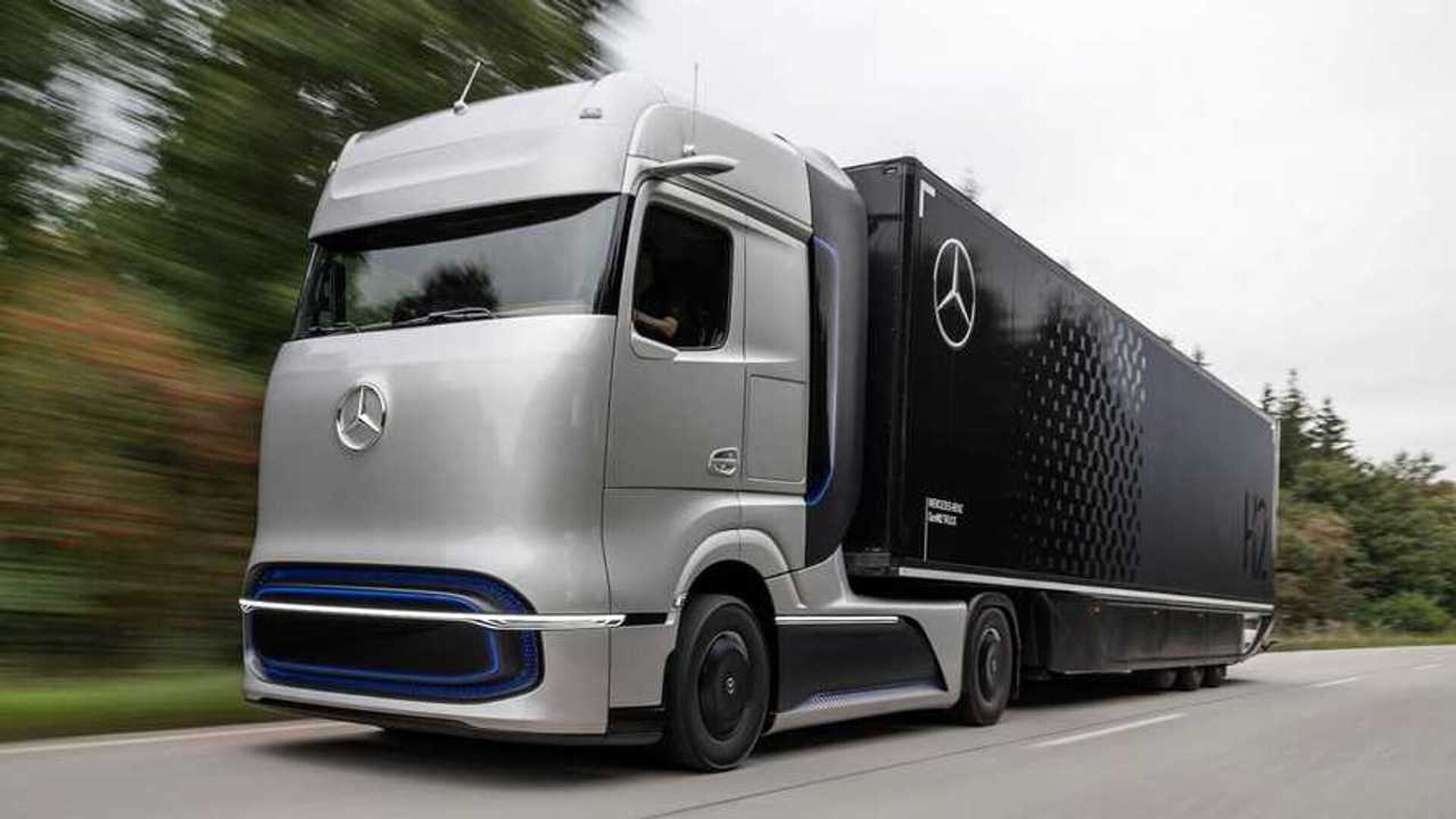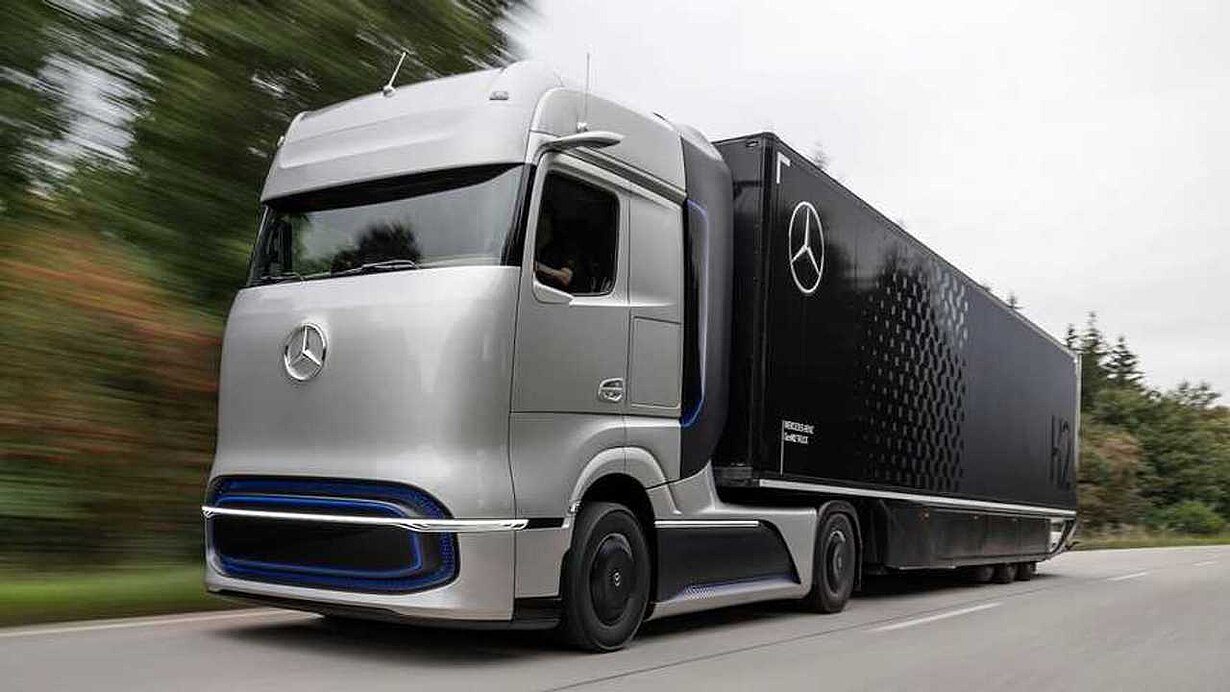Episode 110: Daimler's H2 Truck

Every week there are currently dozens of success stories about battery-electric and hydrogen-powered trucks, most of which are delivered to the first test customers in grand style. On the internet, this news is usually accompanied by escalating discussions and comments about fundamental electrochemistry (energy densities, efficiency and operating costs).
Battery fans see the efficiency, lower costs and longevity of battery technology as advantages. Hydrogen fans, on the other hand, cite faster refueling times and the long ranges of the first H2 prototypes.
The bottom line is that the major German truck manufacturers are currently (still?) pursuing a dual strategy: they are all developing both battery and hydrogen drives for their trucks. When it comes to the question of whether to use liquid or gaseous hydrogen, opinions are once again divided. In today's podcast episode, we look at Daimler Truck AG: the company is developing its first liquid hydrogen truck, the GenH2 truck, which is designed to impress customers with flexible route planning in particular.
Today's guest is Volker Hasenberg, "Manager International Hydrogen Strategy" for Daimler Truck. According to Hasenberg, the GenH2 truck has a range of over 1,000 km on a single tank of fuel. The two liquid gas tanks are mounted where the diesel tanks are traditionally located today. Daimler Truck has now further developed the tank architecture, focusing in particular on safety, heat resistance and vacuum insulation.
However, the lack of a network of liquid hydrogen filling stations and the price and availability of green hydrogen still pose a major challenge for H2 trucks. In the long term, the total cost of ownership (TCO) would have to be worthwhile for the customer in terms of purchase and operation. Hasenberg estimates that this will not be realistic until the end of the 2020s.

